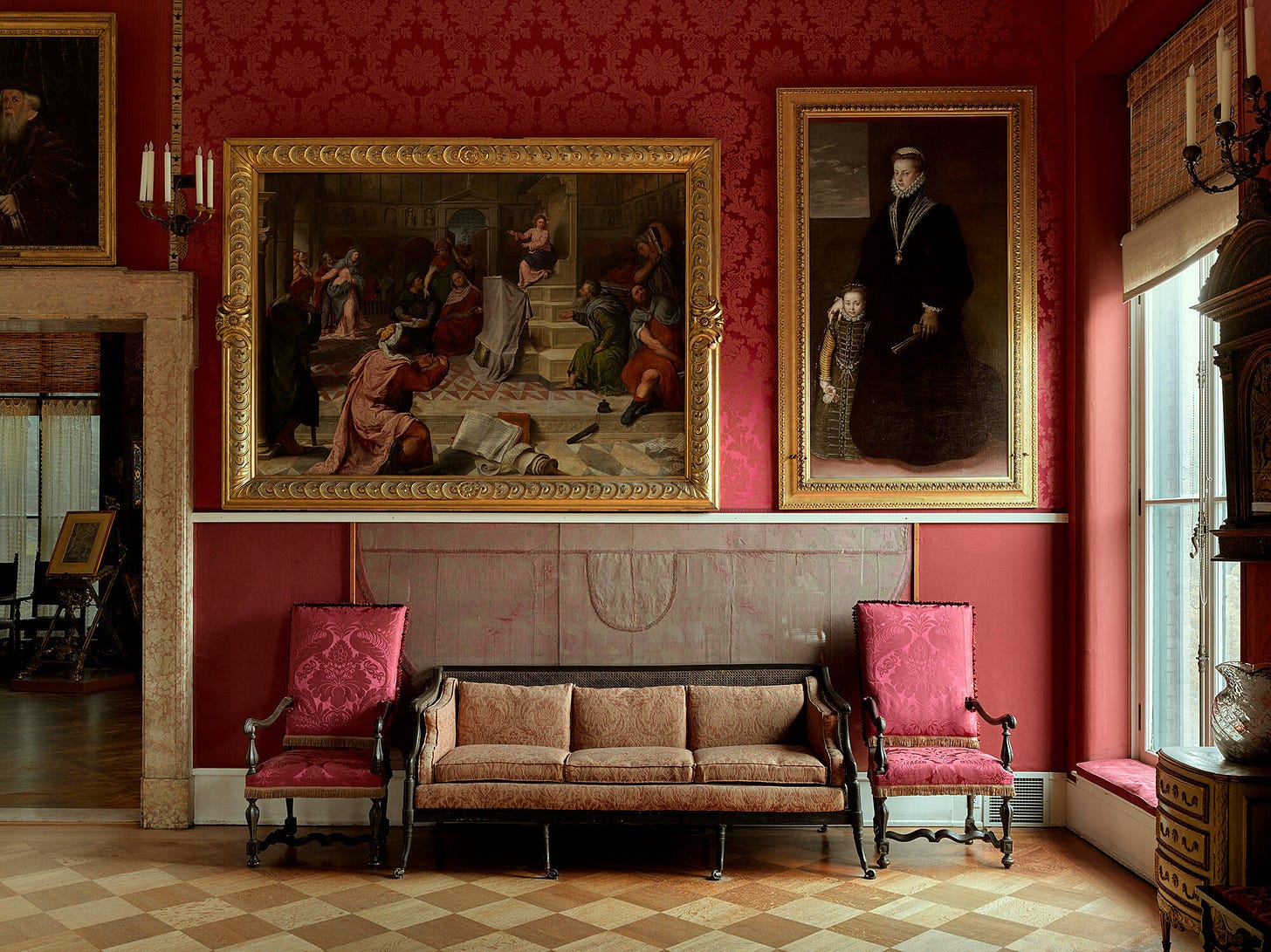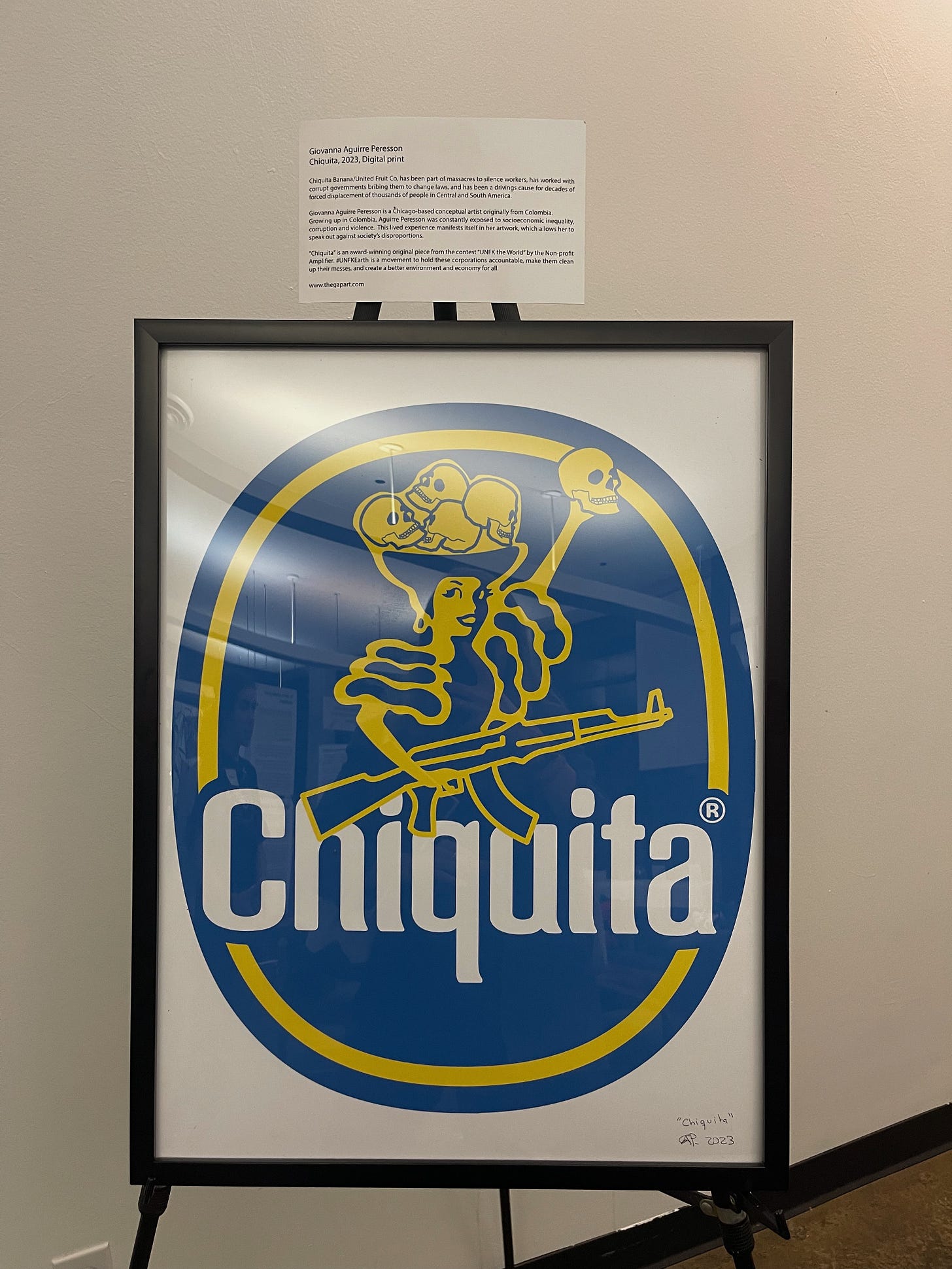‘The Week That Was’ is a free weekly Sunday newsletter that includes a selection of things on my mind (books, art, culture, slow life(style), global affairs, learnings, travel, etc.) as well as articles and podcasts I enjoyed during the week, an album of the week, and other recommendations. If you enjoy these topics, consider becoming a paid subscriber. For $5 a month, you will have access to the rest of the We, Renaissance Women content, including my monthly book round-up, a monthly style digest, travel guides, slow life(style) essays and interviews, and the country bulletin series.
1. Hiking in Indiana Dunes National Park
The Midwest has eight national parks across seven states, with Indiana Dunes National Park being the closest to Chicago. Despite being about a 75-minute drive from the city, I had not made the trip until yesterday. After some brief research, I decided we would do the Cowles Bog Trail, which, according to the National Park Service, has “such outstanding plant diversity that it was designated as a National Natural Landmark in 1965.”
This trail's round-trip distance is around five miles. It is a lovely hike through black oak savanna, marshes, and dunes. Then, you arrive at Lake Michigan at what feels like a private beach. What a reward! Here, you can lay out your blanket, take a dip in the lake, and read for a couple of hours before heading back.
There are several hikes throughout the park, but I understand why this particular one is a classic. I am already scheming to go back again this summer with a group of friends, a packed lunch in tow.
If you live in the United States, I highly recommend downloading the National Park Service app. It has a wealth of information about the 400+ parks, monuments, and historical sites throughout the country. You can search by state, keep a list of the places you have visited, and find out everything you need to know about planning your next trip. Pullman National Historical Park is next on my Illinois list!
2. The Game of Chess by Sofonisba Anguissola (1555)

Known for her portraits of the Spanish court of Phillip II as well as self-portraits, Sofonisba Anguissola was one of the greatest women artists of the late Renaissance. Born in Cremona, Italy, in 1532 to a poor minor noble family, her father permitted her to pursue a well-rounded education that included the fine arts. Barred from studying anatomy or drawing from life due to her gender, she instead experimented with different styles of portraiture that showed her subjects in more informal settings.
One of her most renowned paintings, The Game of Chess, features three of her sisters and a maid. At the time, chess was considered a masculine game because it required strategy and intelligence. Anguissola’s painting was the first to portray only women playing the game and, more than that, with confidence, skill, and enjoyment. By painting these women immersed in a game of chess, she was showing young women in a new way (for the time) while celebrating their intellectual pursuits.

I absolutely love this painting and am so grateful for this Daily Art Magazine article that brought it to my attention. I keep returning to the woman looking directly at us, who seems to be saying… "yes, I’m winning this game, and I will beat you too.”
3. Currently Reading
This week, I have been alternating between reading Susannah Gibson’s The Bluestockings: A History of the First Women’s Movement, Ellen Meloy's The Anthropology of Turquoise: Reflections on Desert, Sea, Stone, and Sky, and Melissa Harrison's The Stubborn Light of Things: A Nature Diary.
It is all nonfiction, filled with beautiful sentences and an outstanding depth of knowledge in the given subject. I am enjoying them all immensely, and am taking my time with each chapter to write down my learnings and notes for future curiosities.
Full reviews of all the books I read this month will be available for paid subscribers on the first Wednesday of August. You can read about the nine books I read - all written by women - in June here.
4. We're Bananas for Justice!*
Last month, a jury in the Southern District of Florida found Chiquita Brands International (you know, the banana brand that is everywhere) liable for $38.3 million in damages for the deaths of Colombian citizens. The 17-year-old case stems from secret payments Chiquita made to the United Self-Defense Groups of Colombia (AUC), a right-wing paramilitary and drug trafficking death squad, between 1997 and 2004. The AUC massacred, tortured, and displaced thousands of Colombians, particularly trade unionists and social activists, who were working to improve the horrific conditions for Chiquita workers. (For more on this case, this Time article is a great read.)
It is hard to overstate how historic this ruling is. For starters, it is the first time an American jury has held a major U.S. corporation liable for human rights abuses in another country. Let that sink in for a minute…
Second, Chiquita was formerly the United Fruit Company (UFC), which also relied on third parties to carry out violence against workers and was involved - along with the CIA - in the 1954 overthrow of the democratically elected President of Guatemala, Jacobo Árbenz Guzmán, because they did not like his land reform policies. (For more on this, I HIGHLY recommend Bitter Fruit: The Story of the American Coup in Guatemala by Stephen Schlesinger and Stephen Kinzer.)
This ruling is more than just a legal victory—it's a groundbreaking step in holding corporations accountable for human rights abuses. Hopefully, this decision will lead to many more workers’ rights victories against the widespread abuses across almost all supply chains.
* I wish I would have come up with this name, but credit must go to Chicago Fair Trade who hosted a great event last week celebrating this legal victory.
5. Dreaming of Sustainable British Knits
I know it is slightly too early to be thinking about knitwear, and the last thing I want to do is rush through the summer; however, when I came across Charl Knitwear, I knew I needed to share it with you immediately. This slow British brand offers “a collection of knitwear using organic, traceable and naturally dyed cashmere, rare breed traceable British wool and un-dyed baby alpaca yarn all knitted and expertly produced at carefully selected factories in Nottinghamshire, London and Perugia (Italy).”
They are one of less than 20 knitwear brands that carry the British wool certification, meaning that the wool is from British sheep and all production happens within the country - this blog post provides an insight into the traceability of their wool. This level of transparency is basically only possible for smaller brands and, even then, is rare to see.
While the shipping costs and import taxes may make it cost-prohibitive to order one of these items from Britain (and the international shipping significantly adds to the garment’s carbon footprint), it is inspiring to see that these options exist and a demonstration of what a future fashion system could (and should) be.
6. Interesting Women Interviews
A few interviews/profiles with interesting women:
Brittany Howard, singer/songwriter, from The Gentlewoman
Isha Ambani Piramal, businesswoman, from Vogue India
Julianne Moore, actress, from AnOther Magazine
Isabella Ducrot, a painter in Rome, from The New Yorker
7. A Dreamy New London Restaurant

A pastel-hued, nature-inspired, mostly vegan restaurant, designed by a female-led studio…sounds like my dream restaurant. Named after the slender stem of a leaf, Café Petiole has recently opened at Somerset House in London, and it looks incredible. Designed by Duelle, the interiors are whimsy and colourful, with antique chairs, delightful butter-yellow walls, and a sky-blue ceiling.

8. A Daily Cup of Spearmint Tea
Supposedly, spearmint tea has a slew of health benefits. It’s (apparently) good for digestion, high in antioxidants, and beneficial for skin/acne as it can assist in regulating hormonal imbalances. If all these things are correct, then great! Beyond that, my new habit of drinking a cup each evening is simply delightful. The tea is light and slightly sweet and feels clean and refreshing as I wind down from the day.
It has become a pleasant grounding ritual to look forward to after dinner, which is itself a health benefit. I sip it slowly in one of my treasured mugs and take a couple of moments to reflect on the day.
How was your week? Did you learn anything fun? Would love to hear!
Kooh by Googoosh (1995). Googoosh is one of the most popular and prolific entertainers in Iran; her career has spanned over six decades.
Articles I read (and recommend) this week:
- Mexican President Claudia Sheinbaum Must Prioritize Reproductive Choice as the Country Becomes a Lifeline for American Women (Ms. Magazine)
- ‘Why didn’t my mother prevent it?’: healing the generational trauma of FGM (The Guardian)
- What Kamala Harris’s track record on climate makes clear (Vox)
- Kamala Harris and the Threat of a Woman’s Laugh (The Atlantic)
- A Woman’s Touch: A Brief History of Healing Hands (A Women’s Thing)
- Police killing of Sonya Massey is striking example of another ‘senseless loss’ in the Black community (The 19th)
- The Young Women Challenging Iran’s Regime (Time)
- 12,500-year-old rock art 'canvas' in the Amazon reveals early Americans' connection with wildlife (Live Science)
- Nancy Pelosi is still in charge (Vox)
- Periwinkle, the Color of Poison, Modernism, and Dusk (The Paris Review)
- The Bloomsbury Group: Britain's most stunning bohemian gardens (BBC)
- For Palestinian restaurateurs in the US, it’s not just about the food: ‘We have to prove we’re human’ (The Guardian)
- Asian American farm collective targets food insecurity: ‘It’s been really healing’ (The Guardian)
- What the Epic of Gilgamesh Reveals About Sumerian Society (Lit Hub)
Podcast episodes I listened to (and recommend) this week:
- Who Cares? Radical Ideas for Changing the Fashion System (Wardrobe Crisis)
- Is This Europe’s Most Underrated Food Tradition? (Travel Tales)
- French magazines, ‘Fanfaretti’ and ‘No One’ (Monocle: The Stack)
Thank you for reading! Hope you have a great week! Talk soon!
Jennifer
xxx












